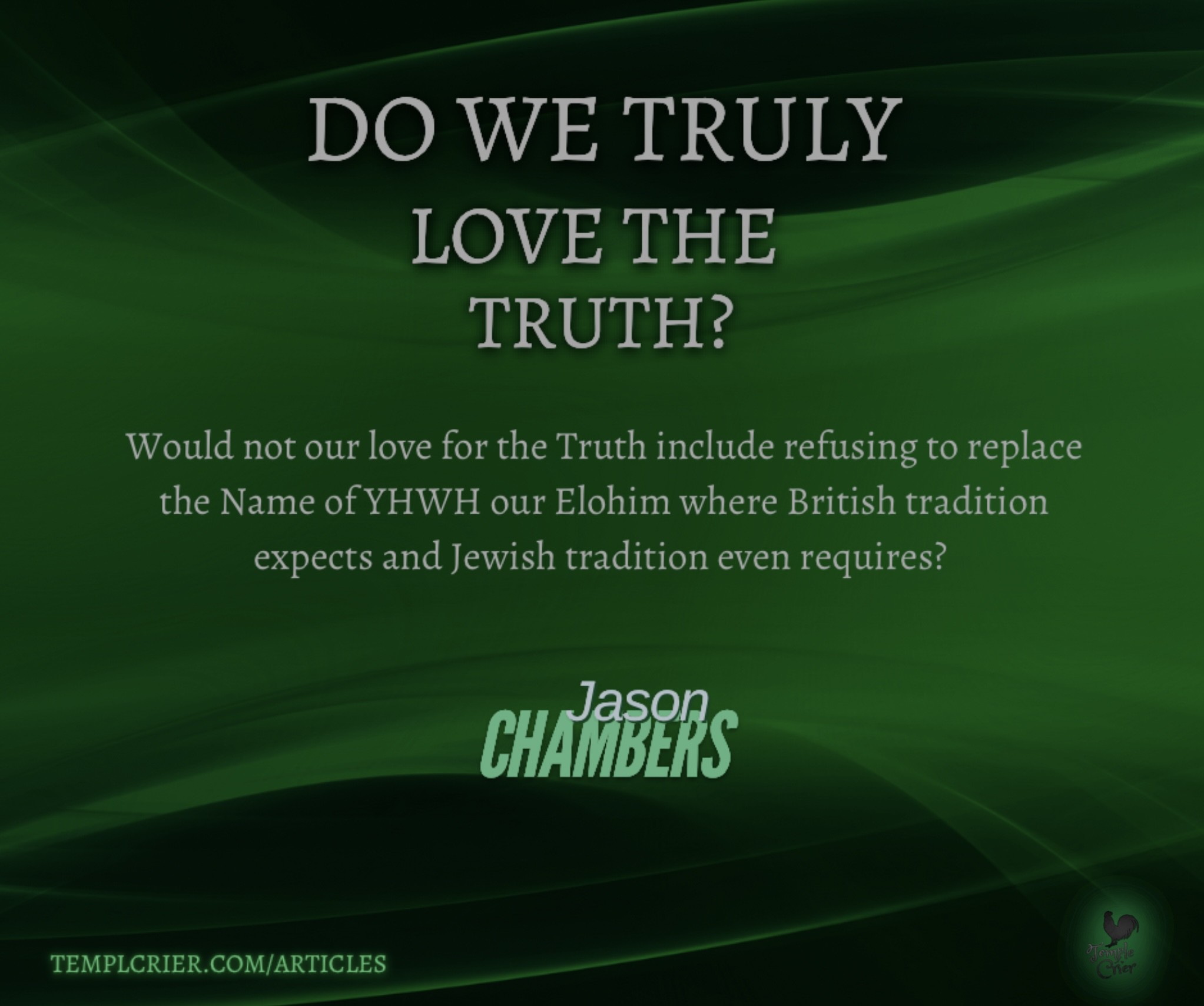Watch
Events
Articles
Market
More
It may seem as though we Calvarians harp on this topic alot (and if it comes across as overbearing we’ll apologize for that perception) but we honestly believe its importance can not be overstated.
(We also leave it alone in general in post and conversation when folks of our or similar persuasion [Messianic, Hebrew-Roots, etc.] speak with the Christian replacement titles of “Lord” and “God”. But when the use of the familiar substitutions arise in post, comment, or conversation about love of the truth or forsaking man-made traditions etc. the irony becomes too much not to warrant being pointed out.)
When folks posts are about a love of the Truth (which based on their testimony thus far, we would say they truly hold) but their quotes of such passages of Scripture don’t reflect the Truth but rather reflect the British Christian replacement traditions of substituting LORD for YHWH and utilizing the old pagan Anglo-Saxon term for divinity “God” to replace Elohim, it warrants a word or two.
The Most High often sites His reason for His declarations. The reason being “I am YHWH your Elohim.” But by British tradition, jumping off Jewish (rabbinic) tradition the church in all the British empire and subsequently all the Western world replaced YHWH with LORD and Elohim with their own heathen epithet for divinity, “God”. They domesticated the Text in translation instead of foreignizing it as is required of proper scribal work. In other words they didn’t use English to explain Hebrew, but instead made it an English story adapted to British culture…and then exported the replacement around the world. Labeled as a translation.
(Are we bashing fellow believers, not hardly, no, as almost nobody knows to call attention to the issue of alterations in the text that the scribes masquerade as translations, most Messianic teachers are highly unqualified ultracrepidarians, and few bother with the indispensable study of philology… so it’s not most folks’ fault for not knowing. And again, we Calvarians don’t bother mentioning it directly to others unless it’s in this setting where it becomes ironic in a call to reject man-made traditions,or a call to cling to a love of the Truth even when it’s uncomfortable and countercultural.)
It’s an important point to ponder on.
Question Everything
templecrier.com/articles



